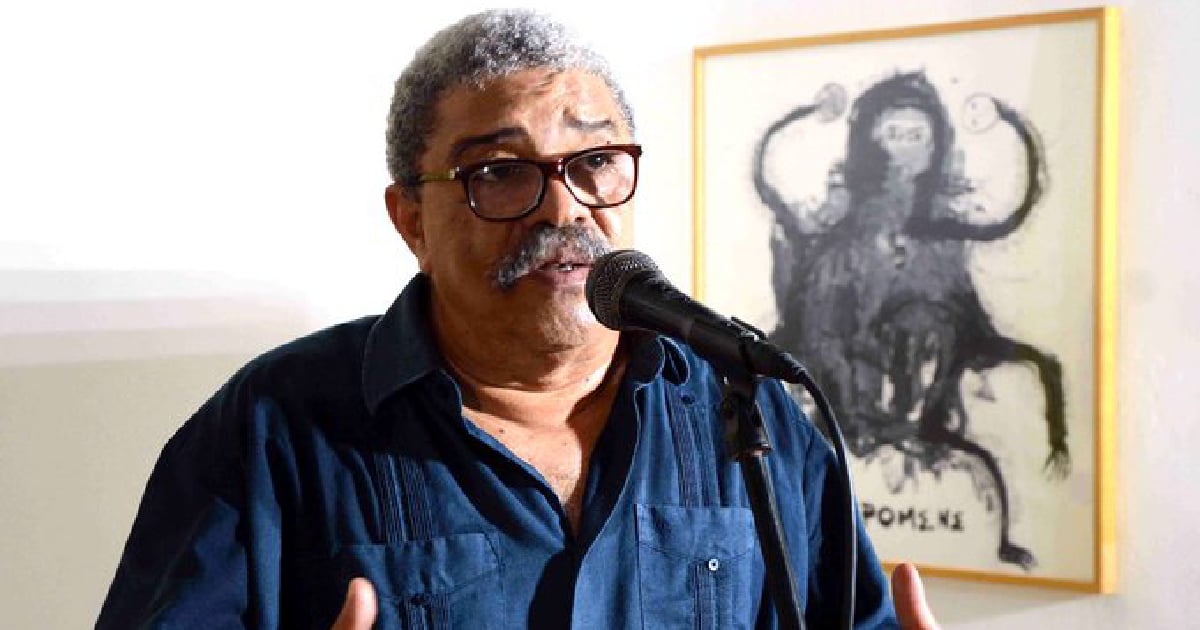With a long history of service in Cuban state media, journalist and writer Pedro de la Hoz passed away this Wednesday in Havana at the age of 71, after a prolonged battle with cancer. According to the state-run newspaper Granma, the José Martí National Journalism Award winner dedicated more than three decades to their cultural section and was noted for his courage in facing the illness that afflicted him.
On Facebook, Abel Prieto, president of Casa de las Américas, extended condolences to the family and friends of the cultural critic, who served as vice president of the Union of Writers of Cuba (UNEAC) and led the Aponte Commission of that organization until his death. "The brilliant journalist and critic Pedro de la Hoz has passed away. From Casa de las Américas, we send our solidarity and our embrace to his wife Virginia, his entire family, his colleagues at the UNEAC and the UPEC. We will miss Pedro's sharp, always anti-colonial perspective on cultural processes. Rest in peace, brother," detailed the post from the former Minister of Culture.
His career included participating in the founding of the newspaper 5 de Septiembre in Cienfuegos, later working for Vanguardia in Villa Clara, where he founded the cultural supplement “Huellas,” and eventually joining the official organ of the Cuban Communist Party. "De la Hoz considered Granma his second home. Without leaving his work at the newspaper, he was an advisor to Armando Hart around 1994, and the first director of the magazine Artecubano of the National Council of Plastic Arts. As part of the Network in Defense of Humanity chapter, he participated in forums held in Rome, Caracas, Salvador de Bahia, and São Paulo," noted the portal Cubadebate.
In addition to journalism, his work spanned musical, television, and theatrical productions, as well as matters related to cultural policy, with controversial texts against Cuban artists who denounced the island's government in the European Parliament or his strong stance against reggaeton. He authored dozens of books, including Africa in the Cuban Revolution; Like the First Day; Durban, Ten Years Later; Hotel Nacional de Cuba, Revelations of a Legend; and Fidel and Mandela.
Throughout his career, he received multiple accolades from official institutions, such as the José Antonio Fernández de Castro National Cultural Journalism Award (1999), the Jorge Enrique Mendoza Award for Written Press (2009), the Replica of the Machete of Máximo Gómez (2022), Youth Master by the AHS in 2023, the Distinction for Cuban Culture (1996), and the Alejo Carpentier Medal (2019).
Pedro de la Hoz's Legacy and Career
To provide a deeper understanding of Pedro de la Hoz's contributions and career, here are some frequently asked questions and their answers.
What were Pedro de la Hoz's main contributions to Cuban journalism?
Pedro de la Hoz dedicated over three decades to the cultural section of the official newspaper Granma and contributed significantly to the fields of musical, television, and theatrical production. He also authored numerous books and participated in international forums.
What awards did Pedro de la Hoz receive during his career?
Throughout his career, Pedro de la Hoz received various accolades, including the José Antonio Fernández de Castro National Cultural Journalism Award, the Jorge Enrique Mendoza Award for Written Press, the Replica of the Machete of Máximo Gómez, the Distinction for Cuban Culture, and the Alejo Carpentier Medal.
What roles did Pedro de la Hoz hold in cultural organizations?
Pedro de la Hoz served as vice president of the Union of Writers of Cuba (UNEAC) and led the Aponte Commission. He was also the first director of the magazine Artecubano under the National Council of Plastic Arts.
